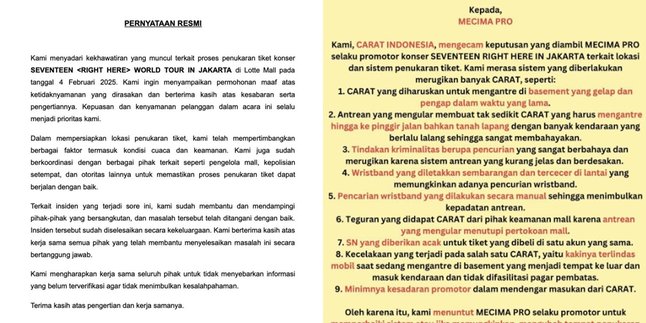Kapanlagi.com - The 13th salary has once again become a focus in Indonesia after the proposal for its abolition sparked debate. This policy has become a right for workers, especially in the private sector, as additional income towards the end of the year. However, the plan to eliminate the 13th salary has triggered various reactions among workers and business actors.
While Indonesia is considering this step, several countries have made the 13th salary a mandatory obligation that companies must fulfill. One example is Italy, where the 13th salary, known as "tredicesima mensilit", is required to be given to employees at the end of each year. Interestingly, in Italy, there is also a 14th salary provided based on agreements in collective labor agreements.
The differences in these policies are certainly interesting to study further. What are the actual regulations regarding the 13th salary in various countries? Why do some countries make it a requirement, while others are considering its abolition? Let’s take a closer look at the complete explanation!
1. History and Origins of the 13th Salary in the World
The 13th salary, first introduced in the Philippines in 1975 through Presidential Decree No. 851 by Ferdinand Marcos, came as a breath of fresh air for workers' welfare who had been trapped in wage stagnation for years. Since then, this policy has spread to various parts of the world, including Asia, where countries like Indonesia and India have made it a mandatory workers' right.
However, in some countries like Singapore and Hong Kong, the 13th salary is optional, depending on company policy. In Europe, although this practice is common, the legal regulations vary; countries like Italy and Spain require the payment of the 13th salary, while the UK and France tend to provide it as a bonus based on individual company policies.
2. The 13th Salary in Italy: A Deeply Rooted Policy
In Italy, the 13th salary, known as "tredicesima mensilit", is not just a tradition, but a legal obligation that benefits workers. Every month, those who receive a monthly salary are entitled to an additional month’s salary paid every December, providing a breath of fresh air before the Christmas holidays.
Even more interesting, some sectors have specific labor agreements that allow for a 14th salary, or "quattordicesima mensilit", which is usually paid out in July. Although not all workers are entitled to it, employees in sectors such as trade and banking often enjoy this benefit.
Thus, the 13th salary system in Italy is designed to help workers cope with the surge in living costs at the end of the year, making it an integral part of the legally regulated salary structure.
3. Differences in the 13th Salary System Across Countries
In Italy, the implementation of the 13th salary is quite strict compared to other European countries. While Portugal and Spain offer two extra payments a year, Germany and Belgium provide the 13th salary as a year-end bonus that varies depending on labor agreements or company policies.
In the UK and France, although there are no official regulations mandating this payment, some companies still provide performance-based bonuses. Meanwhile, across the ocean, the United States has no provisions for a 13th salary, with many workers relying solely on annual bonuses that depend on company performance.
4. The Impact of the Discourse on the Elimination of the 13th Salary in Indonesia
The discourse on the elimination of the 13th salary in Indonesia has created a wave of reactions from various sectors. Workers feel anxious about the loss of a right that has been a support in managing finances at the end of the year, while employers see this step as an opportunity to increase flexibility in managing company finances amid economic uncertainty.
On the other hand, several economists warn that the elimination of the 13th salary could erode the purchasing power of the public, which has the potential to have a negative impact on the national economy. However, there are also voices asserting that the 13th salary policy should be adjusted to the conditions of the industry and the capabilities of each company.
5. Should the 13th Salary Be Maintained?
The 13th salary has become a symbol of worker welfare in many countries, including Indonesia, but in other parts of the world, some countries choose not to mandate it and provide other incentives in the form of performance bonuses.
Looking at practices in Italy, which not only mandates the 13th salary but also adds a 14th salary for certain sectors, shows that this system can function well if supported by robust labor policies. Now, the challenge for Indonesia is whether we are ready to eliminate the 13th salary or instead strengthen regulations to create a better working environment, as Italy has done?
6. People Also Ask
1. What is the 13th salary?
The 13th salary is an additional payment given to workers beyond their monthly salary, usually at the end of the year.
2. Which countries mandate the 13th salary?
Some countries like the Philippines, Italy, Portugal, and Spain have regulations that require the payment of the 13th salary.
3. Is the 13th salary mandatory in Indonesia?
Currently, the 13th salary is still a right for workers in Indonesia, but there is discussion about its potential removal in the future.
4. Do all workers have the right to receive the 13th salary?
In most countries, workers are entitled to the 13th salary, but some sectors or executive levels may have exceptions.
(kpl/srr)
Disclaimer: This translation from Bahasa Indonesia to English has been generated by Artificial Intelligence.












